
-
Find the right food for your petTake this quiz to see which food may be the best for your furry friend.Find the right food for your petTake this quiz to see which food may be the best for your furry friend.Featured products
 Adult Wet Dog Food with Beef
Adult Wet Dog Food with BeefHill's Science Plan Adult Multipack Wet Dog Food with Chicken, Beef & Turkey are complete premium pet foods for adult dogs from 1 year. Your dog will love these deliciously smooth and savoury minced loaves, formulated for balanced nutrition and overall health.
Shop Now Mature Adult Dog Food
Mature Adult Dog FoodHill's Science Plan Mature Adult Multipack Wet Dog Food with Chicken & Beef are complete premium pet foods for mature adult dogs from 7 years. Your dog will love these deliciously smooth and savoury minced loaves, formulated to deliver the appropriate amount of energy to support the needs of adult dogs.
Shop Now Puppy Food
Puppy FoodHill's Science Plan Puppy Multipack Wet Dog Food with Chicken & Beef are complete premium pet foods for growing puppies from weaning until 1 year old and for pregnant and nursing dogs. Your puppy will love these deliciously smooth and savoury minced loaves, formulated for balanced nutrition and overall health.
Shop NowFeatured products Adult Multipack Wet Cat Food with Beef, Ocean Fish & Chicken
Adult Multipack Wet Cat Food with Beef, Ocean Fish & ChickenTender chunks in gravy for cats, with high-quality protein to maintain lean muscle. With vitamin E and omega-3s & -6s for healthy skin and balanced minerals to support healthy vital organs.
Shop Now Light Adult Multipack Wet Cat Food with Chicken & Ocean Fish
Light Adult Multipack Wet Cat Food with Chicken & Ocean FishTender chicken chunks in gravy for cats, with L-carnitine and fewer calories for ideal weight management. Packed with high-quality protein, omega-6s, and vitamin E for shiny fur and healthy skin.
Shop Now Mature Adult Wet Cat Food with Chicken
Mature Adult Wet Cat Food with Chicken
Tender chicken chunks in gravy for mature adult cats. Made with easy-to-digest ingredients, high-quality protein for lean muscle maintenance and antioxidant vitamins C+E for optimal health.
Shop Now -
Dog
- Dog Tips & Articles
-
Health Category
- Weight
- Food & Environmental Sensitivities
- Urinary
- Digestive
- Joint
- Kidney
-
Life Stage
- Puppy Nutrition
- Adult Nutrition
- Senior Nutrition
Cat- Cat Tips & Articles
-
Health Category
- Weight
- Skin & Food Sensitivities
- Urinary
- Digestive
- Kidney
-
Life Stage
- Kitten Nutrition
- Adult Nutrition
Featured articles The Incredible Science Behind Your Pet's Microbiome
The Incredible Science Behind Your Pet's MicrobiomeLearn what your pet's microbiome is, how it contributes to your pet's gut and overall health, and why nutrition is important in maintaining healthy microbiomes.
Read More Show some love with wet foods: a great choice for pets with health issues
Show some love with wet foods: a great choice for pets with health issuesShow some love with wet foods: a great choice for pets with health issues.
Read More The Right Diet For Your Pet
The Right Diet For Your PetIn people, the right diet is very important. If you are eating the wrong way for your metabolism, activity level, age and lifestyle you could end up with health issues.
Read More -


Your pup's actions speak volumes, and although you may not be fluent in speaking ‘dog’–you do need to learn how to interpret dog behaviour. Some behaviours are normal (even if we find them weird or gross) while some behaviours are a sign that your dog is not feeling well - physically or mentally. Sudden changes in behaviour are also usually an indication that something is wrong. Chat to your veterinarian if you are worried about anything your dog is doing, and they can refer you to a qualified behaviourist or trainer if needed.
1. Mouth nip at or bite me
Puppies explore the world using their mouths (much like human babies who can’t resist putting every new thing into their mouths) and this exploration includes human appendages. Before they leave their littermates, they mouth and bite each other while playing, which is critical for them to learn bite inhibition but also reinforces the idea that using their mouths is an appropriate way to interact with others.
Since their little teeth are like needles, we often react immediately to this, and your little pup thinks this is a fun game! They also learn that it is a very effective way of getting your attention.
Puppies also bite and chew things when they are teething as this brings relief to their itchy, inflamed gums.
If your young one is nipping regularly, it's important to address this before it develops into a more problematic dog behaviour down the line.
2. Spin or Chase their tail
As puppies are growing up, they may discover their tails and chase or bite at them. Since they look seriously derpy, when they are doing this, we may be inclined to laugh which inadvertently reinforces the behaviour and means that your pup is more likely to do this, especially when they are trying to get your attention.
However, some dogs may start to spin or chase their tails compulsively, especially in situations where they feel anxious or frustrated. This is a serious behaviour problem requiring veterinary attention and is sadly more common in some breeds of dogs, such as Bull terriers.
3. Dig
Dogs dig in the ground for many reasons: to find underground critters like moles and insects, to make a cool spot to lie, to hide something important to them, or to escape an enclosure (either in search of fun or because they feel distressed on their own). However, some dogs "dig" inside as well. Have you ever noticed your dog scratching at the blankets or sofa in order to find the perfect place to lie down? This behaviour happens most often at night and during nap times, and it is completely normal, the equivalent to you fluffing your pillow or shaking out your duvet before you get into bed.
If your dog's digging is a problem, contact a qualified trainer to address this issue.


Tasty Tips
4. Eat poop
Dogs eat feces for many reasons:
- Curiosity - investigating novel things
- Exploring the environment - remember, dogs explore the world with their mouths
- Boredom - young puppies especially are motivated to engage with the world around them and if they are in a barren environment, faeces may be the only thing for them to interact with
- Hunger - Dogs are naturally scavengers and while bird and cat faeces may seem ultra gross to us, to dogs, they contain some nutrients
- Anxiety - when they associate the presence of faeces with being punished and are attempting to ‘hide the evidence’.
Eating poop can also be triggered by a nutritional deficiency. Make sure you feed your dog a well-balanced food, and contact your veterinarian, especially if your dog is also losing weight.
5. Pant
Dogs have very few sweat glands (mainly in their paws) and therefore cool themselves down primarily through panting. Panting expels body heat from their mouths by using evaporative cooling.
However, it's important to pay attention to panting, as this can also be a sign of pain, stress, anxiety, or other health problems. If you notice your dog panting when it is not particularly hot, consider what else is going on in the environment and seek veterinary advice if needs be.
6. Sit on my Feet or Between my Legs
This is often mistaken for possessive behaviour, but is more likely a sign of anxiety or stress. Your dog is trying to feel safer by staying close. Some trainers encourage pet parents to teach the command ‘middle’ where your dog sits or lies down between your legs for this very reason.
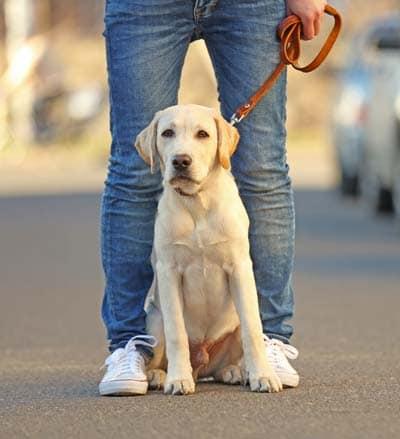
7. Drag their bum on the ground
This behaviour is called scooting and while it may seem funny (or kind of disgusting), it is always a sign that something is irritating your dog's anus. It's possible that your pup's anal sacs are full and need to be expressed, or that the skin around the anus is itching. If your dog’s anal sacs are filling up too quickly or not expressing normally when they defaecate, discuss dietary changes with your veterinarian. Your dog may need more fibre in their diet or a specialised diet to reduce allergies.
Other things that can irritate the area and cause scooting are ingested materials like grass or hair that have become trapped in the anus.
8. Urinate in the house
If your dog is house-trained, it may come as a surprise if you see them urinating in your home or find evidence after the fact. Changes in a dog’s behaviour always have an underlying reason even if it is not obvious to us. Formerly reliable dogs who suddenly begin urinating inside need to see the vet, since their behaviour may be due to a health issue like a urinary tract infection or an endocrine disorder. Anxiety and cognitive dysfunction can also be reasons house-trained dogs may urinate inside.
Of course, if your dog was never completely house-trained, this is something that needs to be addressed with a qualified behaviourist.
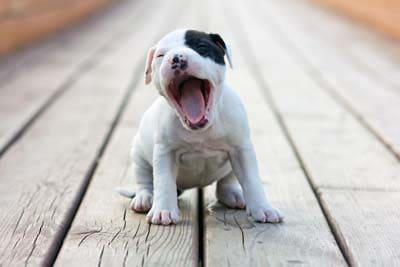
9. Yawn
Although you might think he needs some sleep, a dog yawn doesn't always signal that your dog is tired. Yawning can be a sign of anxiety, fear or stress. If your dog appears to yawn more around a new person or situation, in a new environment, consider ways to help them feel more relaxed with treats, toys or a safe space such as a crate.
Recognising and correctly interpreting the myriad behaviours that dogs exhibit can help us to understand our canine companions better which not only improves the bond we share, but also means that we can more easily identify when they are not feeling well, whether physically, mentally or emotionally, and get them the help they need.


One of our staff authors prepared this article for you
Related products

Hill's Science Plan Puppy Multipack Wet Dog Food with Chicken & Beef are complete premium pet foods for growing puppies from weaning until 1 year old and for pregnant and nursing dogs. Your puppy will love these deliciously smooth and savoury minced loaves, formulated for balanced nutrition and overall health.
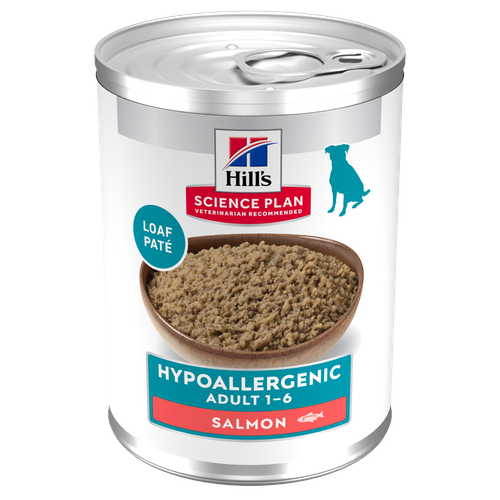
Hill's Science Plan Hypoallergenic Adult Wet Dog Food with Salmon is a complete premium pet food for all adult dogs from 1 year. This savoury tinned loaf is specially formulated for dogs with delicate skin and stomachs. It features a single novel animal protein source and is grain-free.

Hill's Science Plan Mature Adult Multipack Wet Dog Food with Chicken & Beef are complete premium pet foods for mature adult dogs from 7 years. Your dog will love these deliciously smooth and savoury minced loaves, formulated to deliver the appropriate amount of energy to support the needs of adult dogs.

Hill's Science Plan Adult Multipack Wet Dog Food with Chicken, Beef & Turkey are complete premium pet foods for adult dogs from 1 year. Your dog will love these deliciously smooth and savoury minced loaves, formulated for balanced nutrition and overall health.
Related articles
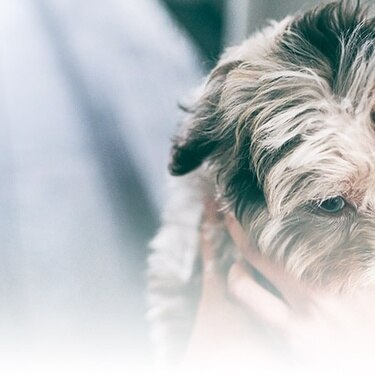
How, when and what to feed your new puppy is an important decision, learn more about the things to consider for feeding your puppy.

Learn effective tips for feeding a dog that's a picky eater and ensure proper nutrition for a finicky eater. Discover tips for pet parents at Hill's Pet UK.

Many human foods are dangerous to dogs. Read about 5 of the worst toxic food offenders that can kill your dog - and how much it takes to hurt them.
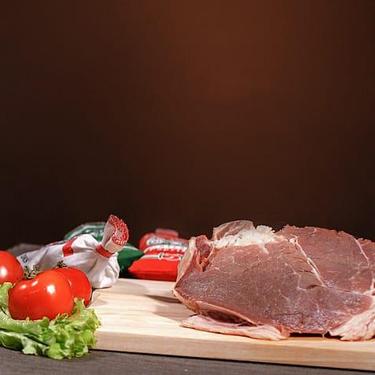
Learn about the potential health risks of a raw diet for dogs and why they aren't the best option for your pup or you.

Put your dog on a diet without them knowing
Our low calorie formula helps you control your dog's weight. It's packed with high-quality protein for building lean muscles, and made with purposeful ingredients for a flavourful, nutritious meal. Clinically proven antioxidants, Vitamin C+E, help promote a healthy immune system.
Put your dog on a diet without them knowing
Our low calorie formula helps you control your dog's weight. It's packed with high-quality protein for building lean muscles, and made with purposeful ingredients for a flavourful, nutritious meal. Clinically proven antioxidants, Vitamin C+E, help promote a healthy immune system.

